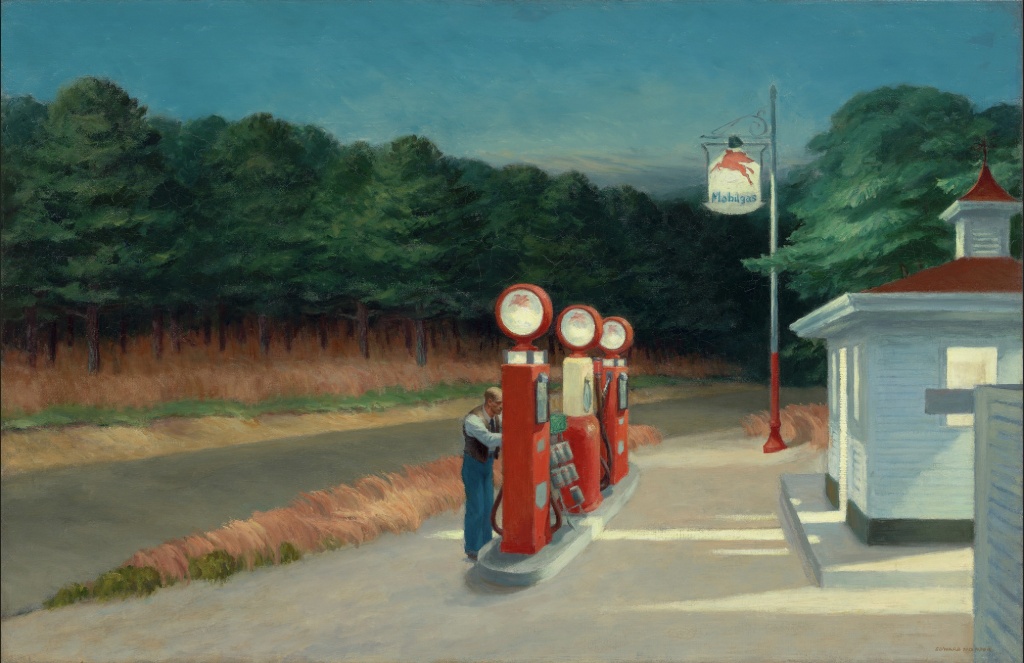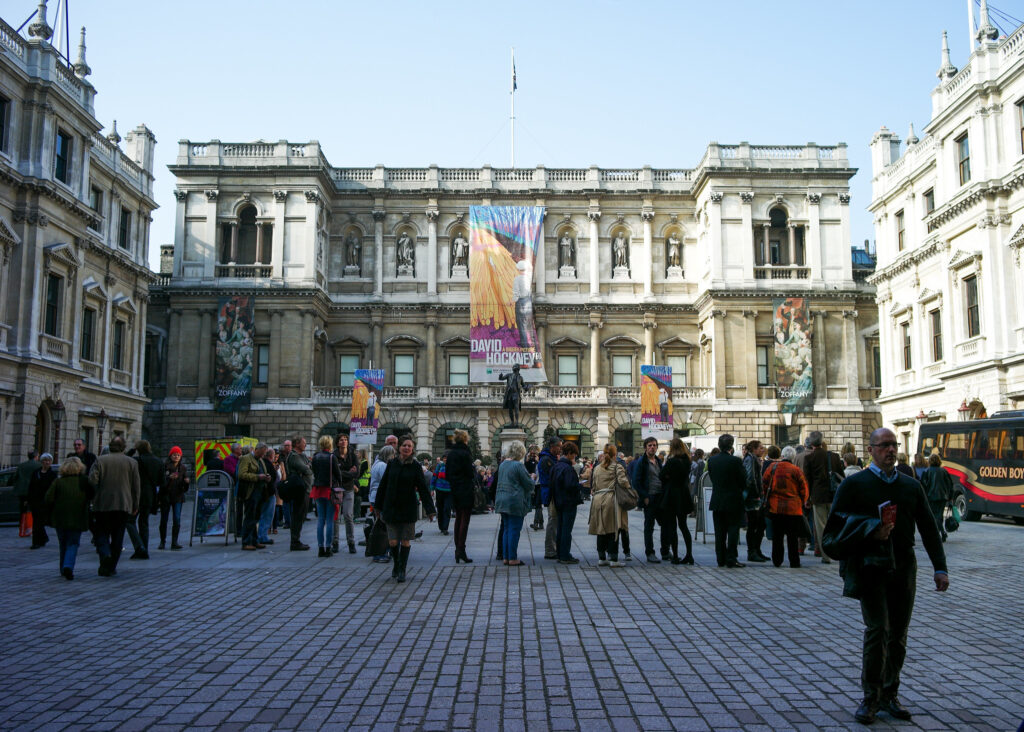The Boardwalk

At Wicken Fen
Quote of the Day
”He not only overflowed with learning, but stood in the slop.”
- Sydney Smith on Thomas Macaulay
Musical alternative to the morning’s radio news
Billy Preston | My Sweet Lord (Live)
Link
Long Read of the Day
The Rotting Internet Is a Collective Hallucination
Too much has been lost already. The glue that holds humanity’s knowledge together is coming undone.
Long and profound essay by Jonathan Zittrain (Whom God Preserve) on the problem of “link rot” and its implications for our cultural record. When historians of 2821 (if our species survives that long) look back on our era for the kind of records that we have of our predecessors, they will find at best a very patchy bricolage, and at worst a black hole. The original designs for the Internet and — later — the Web were wonderfully hospitable to innovation and originality (providing “an architecture for permission less innovation”, as one scholar put it) but, says Zittrain, they also created
gaps of responsibility for maintaining valuable content that others rely on. Links work seamlessly until they don’t. And as tangible counterparts to online work fade, these gaps represent actual holes in humanity’s knowledge.
With two colleagues and the cooperation of the New York Times archive, Jonathan analysed about 2 million externally facing links in articles at nytimes.com since its inception in 1996. They found that 25% of deep links have rotted. (Deep links are links to specific content—think theatlantic.com/article, as opposed to just theatlantic.com.) And the older the article, the less likely it is that the links work. Go back to 1998 and 72% of the links are dead. Overall, more than half of all articles in Times that contain deep links have at least one rotted link.
This is why the essay is worth your time.
And btw, if you want be sure that your grandchildren will be able to see those photographs of yours that are currently hosted online by social media or other services, get them printed on photographic paper by Photobox or similar outfits and store them in secure boxes in the attic.
Judge Throws Out Two Antitrust Cases Against Facebook
There’s been much jubilation in the tech industry as a result of US District judge James Boasberg (an Obama nominee, incidentally) summarily dismissing antitrust lawsuits brought against the company by the Federal Trade Commission and more than 40 states.
The judge eviscerated one of the federal government’s core arguments, that Facebook holds a monopoly over social networking, saying prosecutors had failed to provide enough facts to back up that claim. And he said the states had waited too long to bring their case, which centers on deals made in 2012 and 2014.
The judge said the F.T.C. could try again within 30 days with more detail, but he suggested that the agency faced steep challenges.
As it happens, I agree with the judge but draw different conclusions about the significance of the case. I really liked his succinct critique of it.
Although the Court does not agree with all of Facebook’s contentions here, it ultimately concurs that the agency’s Complaint is legally insufficient and must therefore be dismissed. The FTC has failed to plead enough facts to plausibly establish a necessary element of all of its Section 2 claims — namely, that Facebook has monopoly power in the market for Personal Social Networking (PSN) Services. The Complaint contains nothing on that score save the naked allegation that the company has had and still has a “dominant share of that market (in excess of 60%).” Such an unsupported assertion might (barely) suffice in a Section 2 case involving a more traditional goods market, in which the Court could reasonably infer that market share was measured by revenue, units sold, or some other typical metric. But this case involves no ordinary or intuitive market. Rather, PSN services are free to use, and the exact metes and bounds of what even constitutes a PSN service — i.e., which features of a company’s mobile app or website are included in that definition and which are excluded — are hardly crystal clear. In this unusual context, the FTC’s inability to offer any indication of the metric(s) or method(s) it used to calculate Facebook’s market share renders its vague “60%-plus” assertion too speculative and conclusory to go forward. Because this defect could conceivably be overcome by re-pleading, however, the Court will dismiss only the Complaint, not the case, and will do so without prejudice to allow Plaintiff to file an amended Complaint.
What the failure of the FTC and the States’ complaint shows is that old conceptions of ‘monopoly’ don’t map accurately onto the monopolistic-like power of some tech giants — Facebook in this instance. So pursuing old-style antitrust actions on the basis of ‘monopoly’ is likely to come unstuck, especially with a judiciary that’s been conditioned by decades of Borkism. What’s needed, therefore, is lots of legislative creativity to develop conceptions of corporate power that are appropriate to the power that these corporations actually wield.
In the case of Facebook, for example, a more promising line of inquiry might be that suggested by my colleague Jennifer Cobbe — and also by Josh Simon and Dipayan Ghosh. This line of argument locates the real monopolistic power of social media companies in the algorithms that determine users’ newsfeeds, i.e. what kinds of information users are presented with. One can think of these algorithms as constituting the critical infrastructure of the public sphere. Or to put it another way: once upon a time, John D. Rockefeller & Co exerted (and abused) their monopoly control over the railroads that other oil-drillers needed to use to get their oil to market. Mark Zuckerberg plays an analogous role today — as the controller of the virtual railroad that conveys ideas and information to individual citizens. The implication is that regulation as infrastructure might be a more appropriate way of asserting democratic control.
George Packer on Donald Rumsfeld
In The Atlantic:
Rumsfeld was the worst secretary of defense in American history. Being newly dead shouldn’t spare him this distinction. He was worse than the closest contender, Robert McNamara, and that is not a competition to judge lightly. McNamara’s folly was that of a whole generation of Cold Warriors who believed that Indochina was a vital front in the struggle against communism. His growing realization that the Vietnam War was an unwinnable waste made him more insightful than some of his peers; his decision to keep this realization from the American public made him an unforgivable coward. But Rumsfeld was the chief advocate of every disaster in the years after September 11. Wherever the United States government contemplated a wrong turn, Rumsfeld was there first with his hard smile—squinting, mocking the cautious, shoving his country deeper into a hole. His fatal judgment was equaled only by his absolute self-assurance. He lacked the courage to doubt himself. He lacked the wisdom to change his mind.
Yep. That’s about it.
Other, hopefully interesting, links
-
Boris Johnson and Brideshead Revisited. Interesting piece by John Quiggan on Boris getting married in a Catholic Church. Link
-
DuckDuckGo continues to grow. It’s now the #2 search engine on mobile in the U.S., Canada, Australia, the Netherlands & other places. Link
This blog is also available as a daily email. If you think this might suit you better, why not subscribe? One email a day, Monday through Friday, delivered to your inbox at 7am UK time. It’s free, and there’s a one-click unsubscribe if you decide that your inbox is full enough already!






